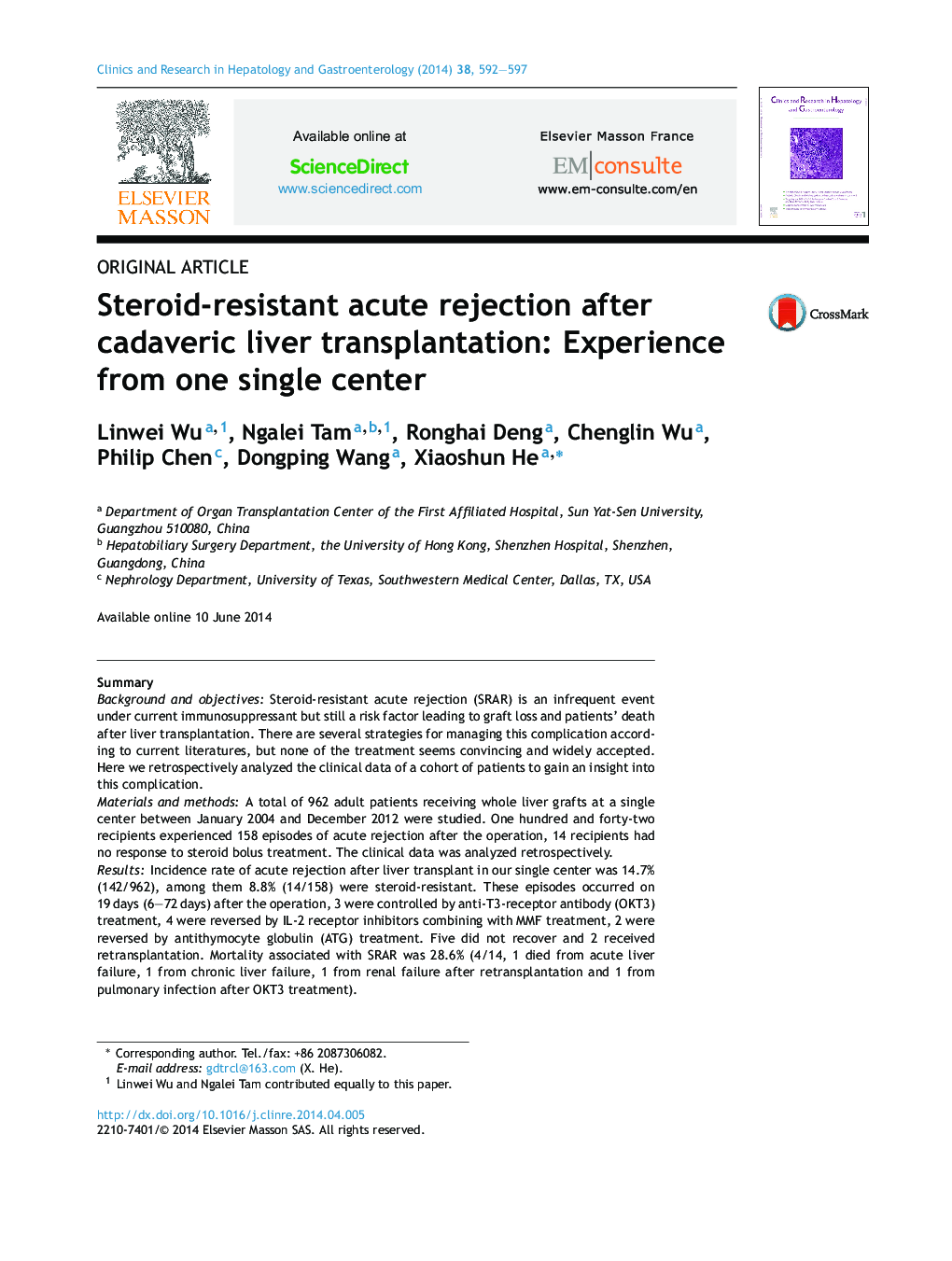| Article ID | Journal | Published Year | Pages | File Type |
|---|---|---|---|---|
| 3286442 | Clinics and Research in Hepatology and Gastroenterology | 2014 | 6 Pages |
SummaryBackground and objectivesSteroid-resistant acute rejection (SRAR) is an infrequent event under current immunosuppressant but still a risk factor leading to graft loss and patients’ death after liver transplantation. There are several strategies for managing this complication according to current literatures, but none of the treatment seems convincing and widely accepted. Here we retrospectively analyzed the clinical data of a cohort of patients to gain an insight into this complication.Materials and methodsA total of 962 adult patients receiving whole liver grafts at a single center between January 2004 and December 2012 were studied. One hundred and forty-two recipients experienced 158 episodes of acute rejection after the operation, 14 recipients had no response to steroid bolus treatment. The clinical data was analyzed retrospectively.ResultsIncidence rate of acute rejection after liver transplant in our single center was 14.7% (142/962), among them 8.8% (14/158) were steroid-resistant. These episodes occurred on 19 days (6–72 days) after the operation, 3 were controlled by anti-T3-receptor antibody (OKT3) treatment, 4 were reversed by IL-2 receptor inhibitors combining with MMF treatment, 2 were reversed by antithymocyte globulin (ATG) treatment. Five did not recover and 2 received retransplantation. Mortality associated with SRAR was 28.6% (4/14, 1 died from acute liver failure, 1 from chronic liver failure, 1 from renal failure after retransplantation and 1 from pulmonary infection after OKT3 treatment).ConclusionSRAR is a severe complication with high mortality after liver transplantation; ATG might serve as a potential treatment.
